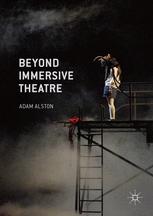

Most ebook files are in PDF format, so you can easily read them using various software such as Foxit Reader or directly on the Google Chrome browser.
Some ebook files are released by publishers in other formats such as .awz, .mobi, .epub, .fb2, etc. You may need to install specific software to read these formats on mobile/PC, such as Calibre.
Please read the tutorial at this link: https://ebookbell.com/faq
We offer FREE conversion to the popular formats you request; however, this may take some time. Therefore, right after payment, please email us, and we will try to provide the service as quickly as possible.
For some exceptional file formats or broken links (if any), please refrain from opening any disputes. Instead, email us first, and we will try to assist within a maximum of 6 hours.
EbookBell Team

4.4
102 reviews
Immersive theatre currently enjoys ubiquity, popularity and recognition in theatre journalism and scholarship. However, the politics of immersive theatre aesthetics still lacks a substantial critique. Does immersive theatre model a particular kind of politics, or a particular kind of audience? What’s involved in the production and consumption of immersive theatre aesthetics? Is a productive audience always an empowered audience? And do the terms of an audience’s empowerment stand up to political scrutiny?
Beyond Immersive Theatre contextualises these questions by tracing the evolution of neoliberal politics and the experience economy over the past four decades. Through detailed critical analyses of work by Ray Lee, Lundahl & Seitl, Punchdrunk, shunt, Theatre Delicatessen and Half Cut, Adam Alston argues that there is a tacit politics to immersive theatre aesthetics – a tacit politics that is illuminated by neoliberalism, and that is ripe to be challenged by the evolution and diversification of immersive theatre.